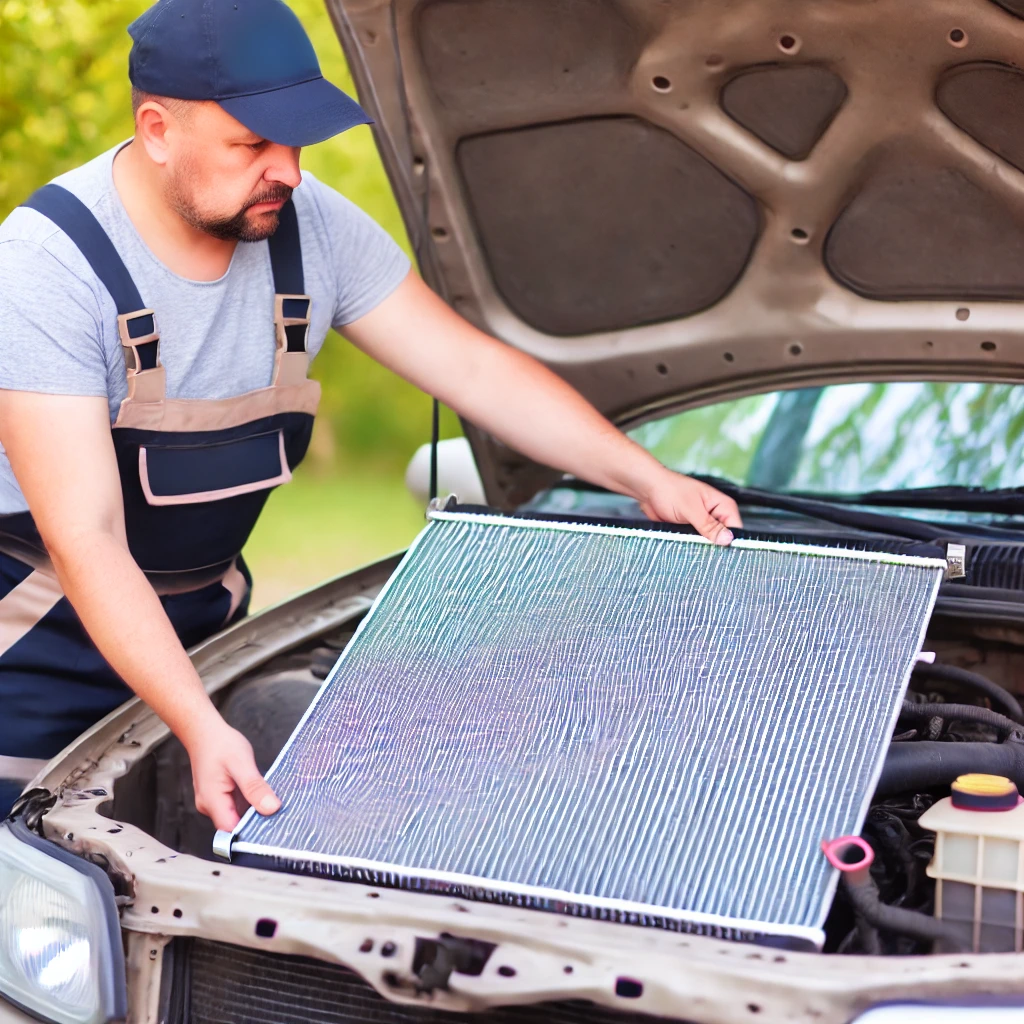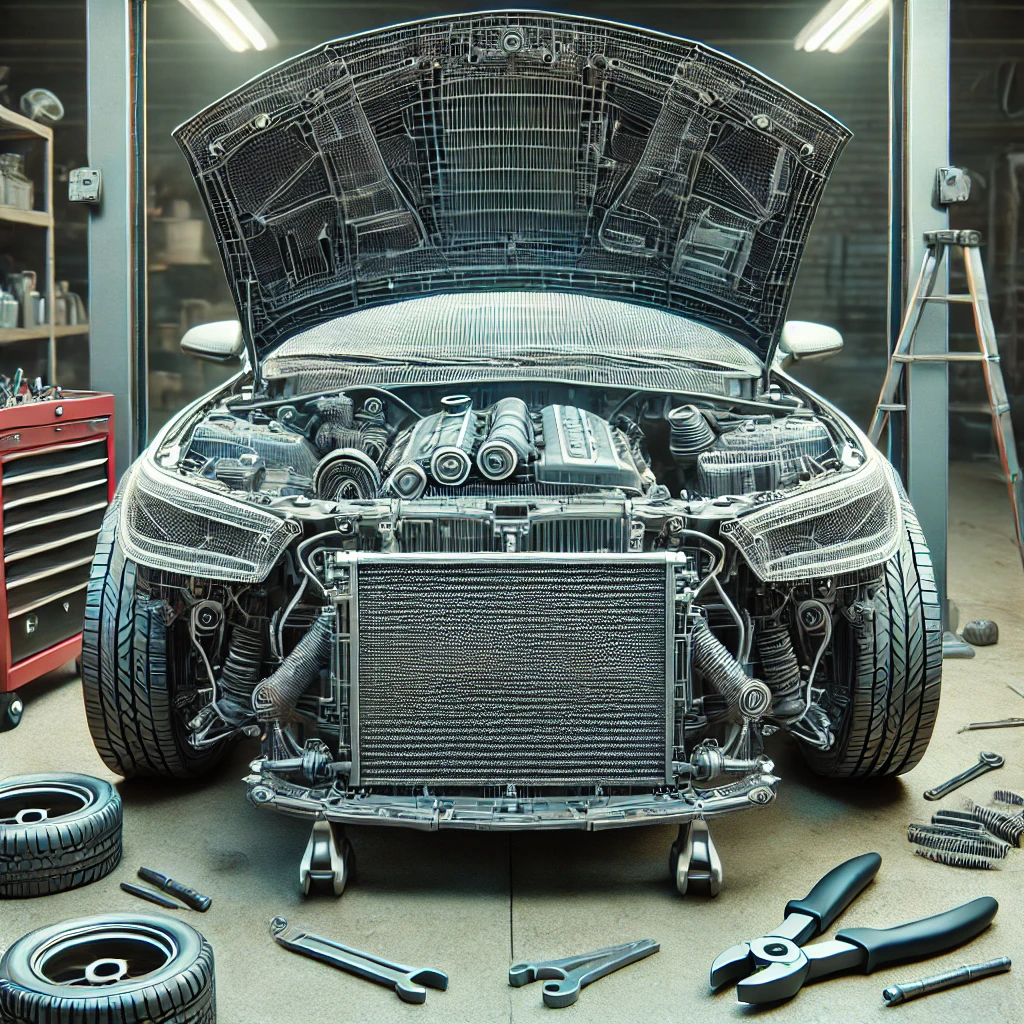For most car owners, there are several vital aspects that come to mind when considering the elements that enable your car to run efficiently; the radiator hoses, for instance, may not be at the forefront of your mind.
They are not as glamorous as a powerful engine or as sophisticated as a modern braking system.
However, these rubber tubes are an essential component of your vehicle cooling system, and their absence can lead to many issues. Keeping up with maintenance at trusted auto repair Houston ensure radiator hoses and other critical parts remain in good condition. In this blog post, we will discuss about the radiator hoses, why they are necessary, the problems that they face and how you can make sure that the hoses are always in good condition.
If you’re searching for ‘auto repair near me,’ we’re here to help — book your service today.
Functions of Radiators and Their Hoses
The radiator hoses are one of the car’s vital components, essential to the functionality of its cooling system.
They circulate fluids, namely coolant, between the engine and the radiator to help regulate the temperature of your engine.
Without these hoses, your engine would heat up within a few minutes and would soon result in a total meltdown. That’s why you should always stay on top with your car cooling system service.
Coolant Circulation:
Radiator hoses help in the movement of coolant within the radiator, the engine, and the back.
They enable a constant supply of coolant that in turn cools off heated components of the engine, thus, avoiding situations where the engine becomes hot.
Engine Protection:
Hoses that are used to circulate coolants also play a part in reducing the thermal stress on the engine.
If it runs too hot, the engine could seize up, the cylinder heads could warp, and other internal parts could be affected, which can lead to high expenses as they will need to replace the engine.
Maintaining Performance:
Proper functioning of the cooling system allows your engine to perform as it should.
These effects will result in reduced performance, poor fuel economy, and high emissions when the car’s temperature rises too high.
It is, therefore, important that radiator hoses are well taken care of as they help determine the overall performance of your car.
Common issues that People Face With Radiators hoses Include:

Even though these are crucial components, radiator hoses are usually neglected during ordinary car maintenance.
If not well managed, they can develop a number of problems that affect their efficiency. Here are some of the most common problems associated with radiator hoses:
Cracking and Splitting:
Radiator hoses are made of rubber as a material that wears out due to heat, corrosive substances, and other factors. This may lead to crack and splits in the walls of the pipes, which in turn cause leakage of the coolant and decrease the cooling rate.
Bulging and Swelling:
One common symptom that may indicate a problem with the cooling system is the swelling or bulging of the radiator hoses due to excessive heat or pressure.
This is a clear indication of internal harm or a blockage in the hose, which is a common scenario. Hoses become enlarged and may experience ruptures, which leads to sudden loss of coolant and potential engine overheating.
Leaks:
The most common problem that can be observed with the radiator hoses is coolant leakage.
Hoses can develop leaks over time because of the wear and tear, loose hose clamps, or if they are damaged by an object that is on the road. Small crack and pinhole can result to loss of coolant and overheating of the car engine.
Clogs and Blockages:
Rust, scale, and debris can build up within the walls of a radiator hose, narrowing the passage and creating obstructions.
These barriers restrict the circulation of coolant, which impairs the working of the cooling system and raises the chances of overheating.
Preventive Maintenance and Care for Radiator Hoses
A few precautionary measures can be applied to ensure that your radiator hoses do not have issues and last long.
If you do not wish to spend hefty amounts on replacing your radiator hoses, then here are the preventive maintenance techniques you should follow.
Regular Inspections:
One should perform radiator hose checks as part of the common maintenance procedure. Look for any signs of tear, damage or leakage on the pipe. Be very particular about the regions towards the hose clamps.
Replace Hoses Periodically:
Radiator hoses should be changed every four to five years, no matter how good the physical condition of the hoses may be.
Rubber products wear out in service, and they should be replaced periodically to avoid failure at the most inconvenient time.
Maintain Proper Coolant Levels:
It is also important that your coolant level is in the right level to avoid regular overheating of the car engine.
It is important to have adequate amounts of coolant because low levels can cause the engine to overheat and put extra pressure on the hoses that are used to circulate the coolant.
Use Quality Coolant:
It is recommended to use the coolant recommended by the manufacturer of the vehicle in your case.
The coolant used should be of good quality with some special ingredients that are used to avoid corrosion of the radiator hoses and the cooling system.
When to seek professional help
Some radiator hose maintenance can be done by the car owner, while in other cases, a mechanic is required.
If the rubber of the hoses is severely cracked, split, or swollen, it is advisable to let a mechanic replace it. Severe damage can result in hose failure and sudden loss of coolant.
If you have tried to repair a coolant leak only for it to come back frequently, then there might be a deeper problem. For such issues, you can always visit Erics Car Care. To book an online appointment, contact us today at 713-667-9293.

